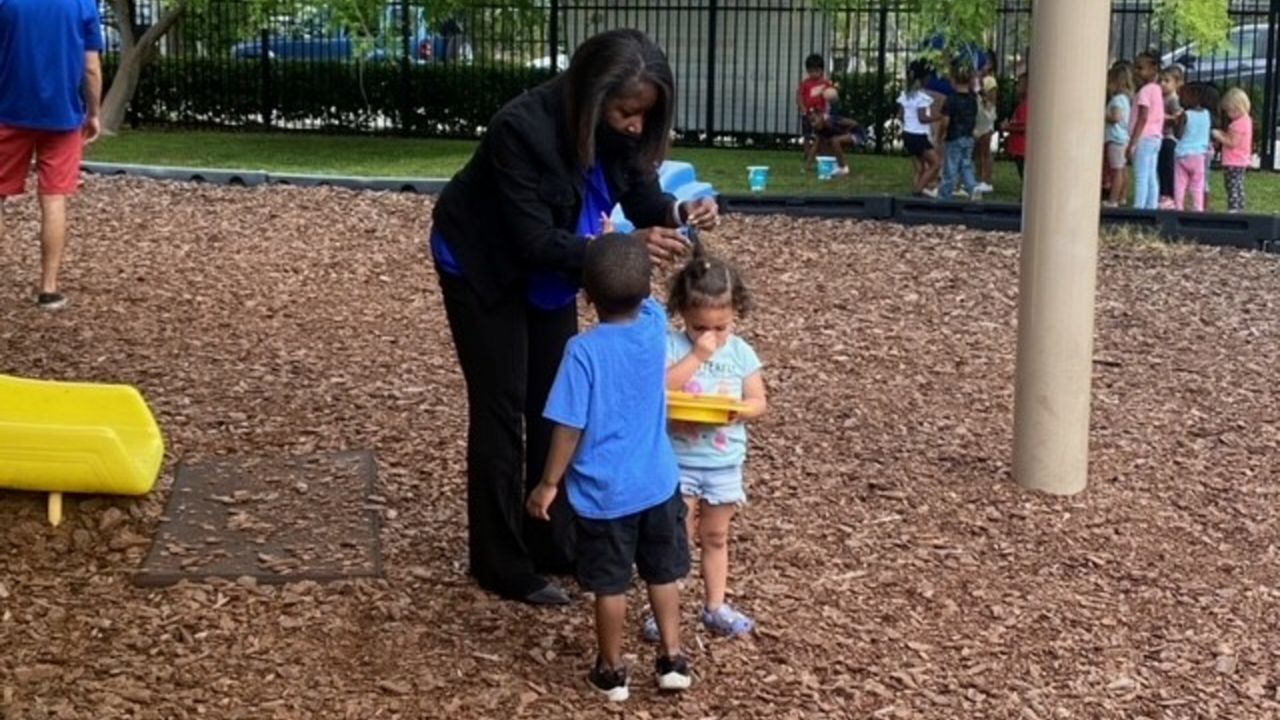For many child care centers, the pandemic’s been more than a challenge; it's been a logistical nightmare.
What You Need To Know
- Rollins developmental psychology expert: "We're at a crisis level" in early childhood care
- Early childhood caregivers and teachers leaving profession for other jobs that pay more
- Deloitte survey: Burden of finding child care has disproportionately fallen on women
- Rollins expert says it will take a national plan to solve early childhood care problem
“According to the data I’ve seen, we are at a crisis level when it comes to early childhood care," said Dr. Sharon Carnahan, a Rollins College professor of developmental psychology and the director of the school's Hume House, the school's Child Development and Student Research Center.
Carnahan said that one third of all child care centers are struggling to stay open or have already shut their doors.
“We’ve lost almost 200,000 early childhood teachers nationally, who are not going to return to the profession. They moved on. They had to," she said. “The national average for pay for preschool teachers is $11.75 an hour.
"If you’ve got to feed your family, and you’re out of work six months and you go get $15 an hour at Costco, you can’t go back.”
Carnahan said teacher loss and center closures have forced parents to pay top dollar for care or stay home themselves.
That burden has fallen disproportionately on women, with 65% shouldering more home responsibilities, including 53% facilitating home schooling, according to a Deloitte Business Survey.
“It happened very, very quickly that moms had to step forward and take this on," Carnahan said, noting that the pandemic also took away grandparent support from working parents.
And while many parents and guardians rely on caring teachers at quality centers, the ripple effect often meant significant changes for those still running such centers, as the pool of substitutes dried up and the "boss had to go in the classroom."
That's exactly what happened at Welbourne Nursery and Preschool in Orange County.
“If the cook had to be out, I had to go and cook," said Director Latonya Pelt, joking as she donned a chef's hat. "I would prefer not to be the cook, but everybody got fed that day.”
One year ago, Pelt said she was growing increasingly nervous. Her 2- and 3-year-olds suddenly began talking about COVID-19, as they learned about sick or dying grandparents, and enrollment began to drop precipitously from about 64 students to 17.
“People were afraid. They don’t know what COVID is. People are dying, (so) 'I’m taking my child out,' " she recalled. "You’re like, 'What am I going to do now? I have staff here; this is their livelihood. How are we going to survive?' I didn’t want to lay anybody off. I didn’t want to have to let anybody go.”

Welbourne Nursery and Preschool Director Latonya Pelt checks on young children on the playground at the Winter Park school. Early on in the pandemic, she was forced take on a variety of roles as staffers were forced to temporarily or permanently stop working. (Julie Gargotta/Spectrum News 13)
Pelt said the school, a nonprofit that relies on donations, survived by cutting staff hours for six weeks. She shifted teachers from class to class, depending on enrollment, while remaining mindful of safe ratios between staffers and students.
And for those families who lost income or could not pay, Welbourne Nursery and Preschool gave a "COVID discount" through the start of 2021.
Among those receiving such a discount was one nurse who cares for her disabled husband.
Pelt shared that the woman was exposed to the virus while on the job. Protocol dictated she remove her child from the center — care she desperately needed — for two weeks, though bills continued to pile up.
But “during that time, I said, 'We’re not going to charge you for that," Pelt recalled telling her. " 'We can still hold your child’s spot so when you’re back on your feet (she can come back).' We gave her two bags of food to make sure she had enough and she was covered for her family.”
To combat the growing child care problem exacerbated by the pandemic, Carnahan said it will take a national plan supporting care and making it affordable for families. She referenced other countries, such as Denmark, Sweden, and France, which have national models for centers; in those countries, Carnahan said quality is maintained by inspection and school tuition is subsidized to cut costs for families.
“It is my hope that this is a time — as women return to the workforce, as schools fully open — that we will become aware of the national crisis in quality and access to early childhood education," she said.
Meanwhile, as enrollment ticks back up again — Welbourne in Winter Park is back to 55 students — Pelt is celebrating what they've cultivated.
She sits in a garden the school just built, located behind the center. There, sprinklers pop up from the ground to water the newly-planted greens, as students learn about horticulture and healthy eating.
“I would love to see the school continue to grow, the staff to continue to grow, enrollment to increase," Pelt said with a smile. “It feels really good to see those children come back.”



